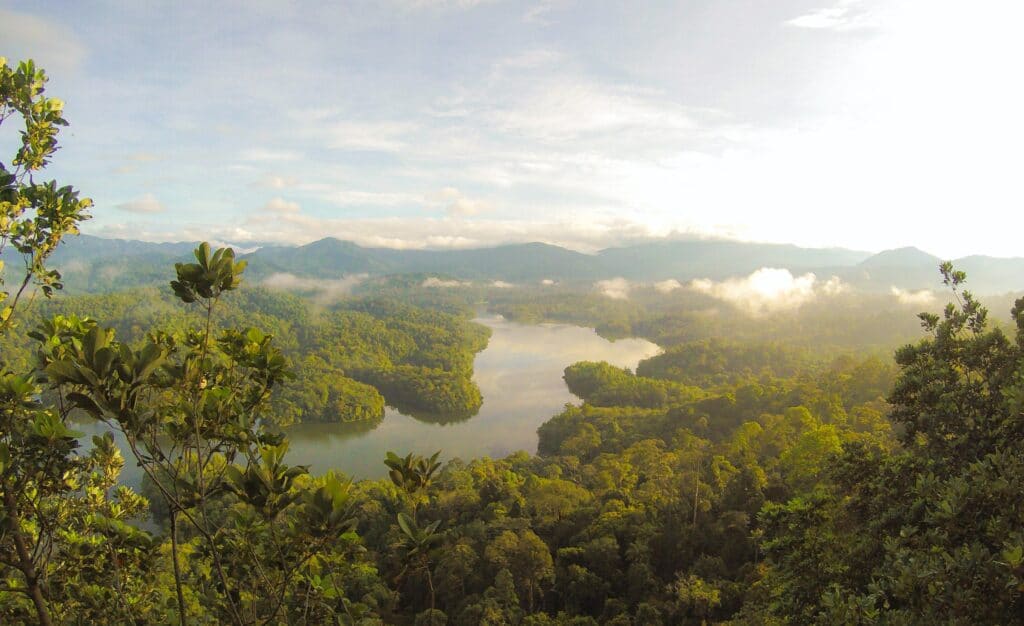COP26 brings an unprecedented global pledge to halt deforestation – one which must succeed

Today over 100 global leaders, representing 85% of the world’s forests, made a welcome new commitment at the COP26 climate summit to reverse deforestation by 2030. While this isn’t the first such pledge, we look at how more countries, finance, enforcement and equitable engagement of local people on the ground can and must now halt the loss of the forests we ultimately all depend upon.
A world without forests would be a world without life. Forests are alive with a vast variety of wildlife who rely on them for food and shelter, and many people also call forests home and depend on them for their livelihoods and survival. Around the globe, we are indebted to forests for our clean air and water, productive soils, and their carbon storage abilities – an ally in our fight against climate change. Forests also enhance the quality of our lives. Their beauty has inspired humankind for centuries, and time spent exploring them is known to benefit our mental and physical health. Despite this, the past few decades have seen these precious landscapes destroyed due to disregard for nature.
Today, it looks like governments have finally recognised the urgent need to protect forests, as they made a new commitment at COP26 to reduce and halt forest loss and degradation by 2030, supported by £9bn ($12bn) of public finance alongside £5bn ($7bn) of private investment. With over 100 leaders supporting this announcement including from key tropical forest countries such as Indonesia, Democratic Republic of Congo, and Brazil, as well as Canada, Russia, and the US, home to vast boreal forests, this brings new hope for halting deforestation, protecting and restoring forests, and supporting the rights and livelihoods of Indigenous Peoples and local communities.
Some might be sceptical and argue that we have been here before, as action on previous pledges could at best be described as disappointing. Dr Noëlle Kümpel, Head of Policy at BirdLife International, comments, “With significantly more signatories, and substantial public and private finance behind it, this new pledge by global leaders at COP26 today is an important step forward in recognising the value of forests for nature, climate and people, and what’s really needed to reverse the ongoing, disastrous loss of primary forest around the world. But whether it succeeds where previous voluntary pledges have failed depends on immediate and concrete improvements in transparency, governance, participation and human rights, and focusing on protecting what intact forest we still have left.”
BirdLife International has long been working with Partners, Indigenous Peoples and local communities on the ground to conserve, restore and reconnect forests, such as the Atlantic Forests with Guyra Paraguay, SAVE Brasil and Aves Argentinas and the Gola Forest in West Africa with the Society for the Conservation of Nature of Liberia and Conservation Society of Sierra Leone. Learning from our local-to-global approach, through the Trillion Trees initiative we are working with the Wildlife Conservation Society and WWF to mobilise the finance needed to achieve this at scale.
Through our Asia-Pacific Forest Governance Project we are calling for nations to ensure that forests are managed legally and sustainably, and that local communities and Indigenous Peoples are at the heart of decision making. This new declaration includes a funding pledge of £1.25 billion to directly support local communities and Indigenous Peoples, which is an important step towards championing their rights, though currently detail is lacking on how the funds will be mobilised on the ground.
“Our work and that of other grassroots organisations around the world provides valuable lessons to deliver on these promises, as demonstrated by the 600 participants of our recent multi-stakeholder Asia-Pacific Forest Governance Forum,” continues Dr Poshendra Satyal, BirdLife International’s Global Forest Policy Coordinator. “We need adequate systems and collaboration in place between public and private actors and local people on the ground to facilitate and track progress, and financial support for and recognition of the rights and role of Indigenous Peoples and local communities. Only with all these things in place will we be able to effectively and equitably reverse deforestation, and meet global goals on nature, people AND climate.”
Dr Kümpel adds, “As recognised last month by the UN Human Rights Council and championed through our own 1Planet1Right campaign, we all have the right to a healthy environment, and action to reverse deforestation and conserve forest ecosystem integrity is central to ensuring an equitable, carbon-neutral, nature-positive future.”